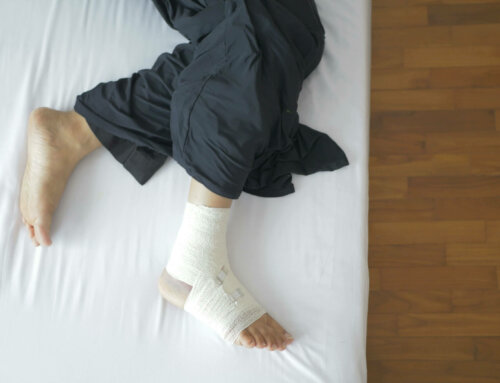You’ve probably heard lots of diabetes management recommendations from your health team. I know it can be overwhelming at times. However, your doctor and other health care providers do want to see you as healthy as you possibly can be – and they especially want you to avoid suffering from some very serious diabetic complications such as diabetic retinopathy, poor kidney function, diabetic neuropathy, and heart disease to name a few. With your doctor’s recommendations, you are your best daily caretaker. As a nurse and diabetes educator I’ve worked with thousands of diabetes patients and have come up with the most common and essential tips for successful diabetes management.
Know Your “ABCs”
- A1C – Your 3-month average blood sugar. Work with your doctor to achieve a level between 6.5%-7%.
- Blood Pressure – 130/80 is optimal. Test and record your blood pressure 3 times per week with a home blood pressure monitor.
- Cholesterol – “Good” cholesterol (HDL) level above 45 for men and above 50 for women. “Bad” cholesterol (LDL) below 100 if no cardiac disease, and below 70 if documented cardiac disease
- Triglycerides – Below 150
Use Your Glucose Meter Daily
- Glucose levels:
- Fasting in the morning 80-130 mg/dl
- Postprandial (after meal) Ideal is 150 mg/dl or below, acceptable is 180 mg/dl or below
- Bedtime 110-150 mg/dl
- Vary testing times and document results in a log book
- Use your control solution to test the first strip of every new bottle
- Use lancets only once and dispose lancets in heavy duty plastic container like a Sharps container
Inspect & Care For Your Feet Daily
- Use an telescoping self-exam mirror to see bottom of your feet
- Wear well-fitting shoes with support and cotton-nylon blend socks
- Never go barefoot, including not going barefoot in the house
- Consider a visit to the podiatrist (your insurance may cover)
- Never treat blisters, corns or calluses yourself
- Use lotion after your bath/shower on heels of feet
- Dry and apply power between your toes
- Neuropathy is common in diabetes and the lead cause of foot amputation
Maintain Good Vision Care
- Have a yearly eye exam with retina dilatation
- Report any vision changes immediately
- Wear sunglasses outside – always
Maintain Good Oral Hygiene
- Have a dental checkup and cleaning every 6 months
- Use a “complete” toothpaste and alcohol-free mouthwash
- Floss after meals to prevent periodontal disease
Carry Glucose Tablets
- Use when experiencing low blood sugar below 70 mg/dl
- Take 15 grams of glucose and wait 15 minutes, then retest blood sugar
- Repeat if still below 70
- If between 70-80, eat a protein and carbohydrate snack
Consider a Yearly Flu Vaccination
- Also speak with your doctor about a pneumonia vaccine
Monitor Your Kidney Health
- Have a urinalysis and monitor your microalbumin (protein) level which indicates the health of your kidneys
Stay Active
- Do aerobic type of exercise – a minimum of 150 minutes per week in 30-minute sessions.
- Walking, swimming and biking are good activities
- Work on balance and stretching
Learn to Read Food Labels
- Learn to read food labels and count carbohydrates
- Get a “portion” plate that makes it very easy to manage portions of meat/protein, fruits/vegetables, and grains
- Include fiber, vegetables, fruits, low fat dairy, lean meats and whole grains
- Drink plenty of water unless you are on fluid restriction
- Do not skip meals
Stop Smoking
Take All Medications as Directed by Your Doctor
Limit Alcohol – Ask Doctor for Recommended Amounts
NOTE: Consult your doctor first to make sure my recommendations fit your special health needs.






Leave A Comment